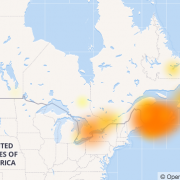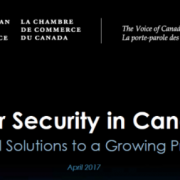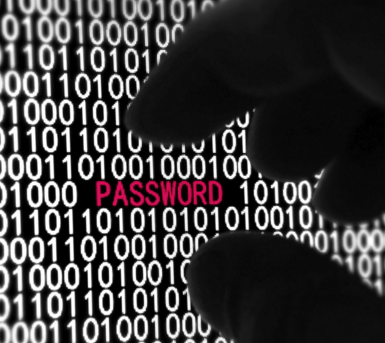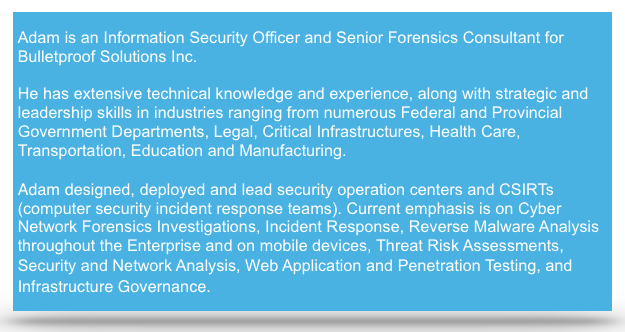Cybersecurity risk management and mitigation is at the forefront of discussions in boardrooms globally. With an estimated annual burden of up to $1.7 trillion resulting from data loss and downtime (often from security violations), both the c-suite and shareholders have called on security experts to get out in front of the risk.
Researchers and research initiatives are the foundation for accomplishing this. At New Brunswick’s Information Security Centre of Excellence (ISCX), researchers like Dr. Natalia Stakhanova are leading the way with the support of funding, innovative partners, and an unparalleled focus. As one of the leading researchers in the field, Dr. Stakhanova was recognized in 2014 as the first NB Innovation Research Chair in Cybersecurity.

I had a chance to sit down with Dr. Stakhanova to talk about her work.
MacLean: You were named the first NB Innovation Research Chair in Cybersecurity, can you tell us about what you want to accomplish in this role?
Dr. Stakhanova: I continue to be very excited about this initiative. Over the next few years we will be facilitating the research that will foster innovation in the field of cybersecurity. An important component will be my team working very closely with local industry to promote further commercialization of products that will benefit companies around the world.
There is already a significant level of expertise right here in New Brunswick. We will be building upon our core expertise and further developing the skills and assets that we have right here. There is a great culture of innovation and entrepreneurship among the people collaborating in this space right now. And the best part is seeing the actual results.
To generate a renewing pool of local talent, I’ll be mostly focused on building student knowledge, expertise and entrepreneurial spirit. I’m hoping that in this endeavor the Dr. J. Herbert Smith Centre for Technology Management & Entrepreneurship (TME) will step in with its programs to give students necessary skills and tools to become entrepreneurs.
MacLean: How will you be working with other New Brunswick companies, students, and people?
Dr. Stakhanova: A major part of my role is to assess the risks that the local industry has, and to provide the research with practical applications to mitigate those risks. My work facilitates research in both the private and public sectors. Several local players have already come on board and are ready to work in a collaborative environment to focus on such issues as Smart Grid to address security-related challenges. Among these players are IBM Canada, Sentrant, and NB Power. We are also working closely with several startups. I know that through the research there will be additional commercialization.
MacLean: How does New Brunswick stand in this field of research and innovation compared to other regions?
Dr. Stakhanova: There is no question that there is a lot of support in Canada for these R&D centres and we are well positioned here at UNB with other global areas. We have leading expertise, lots of researchers, and interested private sector companies. There is an excellent relationship between UNB and the private sector. This fosters collaboration, innovation and the drive to succeed.
MacLean: What do we have here in New Brunswick that positions us better than other areas?
Dr. Stakhanova: I can’t name any other province that has as many initiatives, activities and investments in play at one time to support the Information Technology (IT) industry. There is just so much innovation and research taking place right here in New Brunswick. We also have a unique solidarity of people here in the province. People want to be here. This is so rare and wonderful.
There are of course developers elsewhere, but the developers that are here have a unique connection to the province and its people. They are loyal and can’t be lured away in the same way that you see happening in other regions. This creates a wonderful stability.
MacLean: Do you see spin off companies emerging or other companies wanting to locate here in New Brunswick to take advantage of the work that you are doing?
Dr. Stakhanova: Absolutely. We are already seeing companies from outside the region that are quite interested in what we are doing. These are still early days, but we are hearing from a lot of people.
MacLean: What made you choose to come to New Brunswick and UNB?
Dr. Stakhanova: I moved to Fredericton in 2007 as a professional Fellow. I fell in love with the region immediately. It is one of the most family-friendly places I have ever encountered. There is also a personal touch at UNB. It is essential and critical when education is involved to be able to collaborate, have mentors and to have access to as many private sector companies as we do.
It is truly a unique experience to find a place to grow professionally, while also having everything you would want for your family.
Cybersecurity is one of the most important issues of our time. If you are a small or medium business, cybersecurity should be more top of mind. We can help you develop your Marketing and Communications strategy to handle communications around a breach. We can train you and your team to be media ready. Be Prepared! Be Trained! Have a TaylorMade Solution – Contact us today.
Editor’s Note: This is a post that I originally wrote for Invest NB’s Blog and has since be reposted to Opportunities NB’s Blog.








